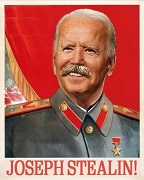|
KildarX posted:Why was the United States Air Forces created as a branch of service; instead of just remaining to be the United States Army Air Force? Airpower became important enough to constitute a separate service, in addition it recognized the service and effort made by the air crews during the war. Since I believe most other countries with an air force had it as a separate branch, it was a logical move as well.
|
|
|
|

|
| # ? Apr 19, 2024 06:32 |
|
DarkCrawler posted:Airpower became important enough to constitute a separate service, in addition it recognized the service and effort made by the air crews during the war. Since I believe most other countries with an air force had it as a separate branch, it was a logical move as well. Yeah, I think by the time WW2 started, Japan and USA were just about the only power players whose air forces were still part of the Army instead of being a separate service branch.
|
|
|
|
Puukko naamassa posted:Yeah, I think by the time WW2 started, Japan and USA were just about the only power players whose air forces were still part of the Army instead of being a separate service branch. Japan's navy had its own large land-based airforce too. Because inter-service cooperation is for gaijin.
|
|
|
|
During WW2 the USAAF's share of army spending was - uh, I don't exactly know how much, but pretty darn much anyway, so it was in the best interests of both the army and the air force to have separate budgets. Plus there was that whole thing about bombers and escort fighters needed to nuke godless communists. The same act that created the Air Force also created the Joint Chiefs of Staff.
|
|
|
|
Was the broad front strategy really the way for the western Allies to go in WWII? The Americans and the British must have been the most mechanized armies in the entire world, compared to the Germans who still used millions of horses to haul stuff around. They had huge, well trained air forces that could act as spotters and close air support. And they decided to slog forward mile by mile in a straight line. I can't imagine a strategy that would more effectively negate all of their advantages. Then when they did grow a pair, they blew it on Market Garden where every single part had to go exactly right for it to work. Why not just use either Soviet or German doctrine, both of which seemed to be more effective at quickly taking large chunks of territory very quickly? OctaviusBeaver fucked around with this message at 19:06 on Oct 10, 2011 |
|
|
|
OctaviusBeaver posted:Was the broad front strategy really the way for the western Allies to go in WWII? The Americans and the British must have been the most mechanized armies in the entire world, compared to the Germans who still used millions of horses to haul stuff around. They had huge, well trained air forces that could act as spotters and close air support. And they decided to slog forward mile by mile in a straight line. I can't imagine a strategy that would more effectively negate all of their advantages. The problem with the Western Allies was that they could not really support large punches through due to logistics problems in France. Even a successful Market-Garden had a lot of limits on what could be done simply because of the crippling logistics issues that plagued the Allied forces in France. It's also important to understand that especially the US forces were much more powerful all around, most US units that saw combat were quality units, whereas both the Germans and Russians were facing manpower squeezes(this was also a problem for the British, which is why they were heavy on armor). This meant that the Soviets for example had most of their striking power in six tank armies for the third period of the war, and the Germans had most of their power in their armored divisions, as infantry divisions were reduced in TOE strength and generally placed in low priority for replacements. The US on the other hand had something called the 90 division gamble, which meant they would field only 90 divisions, in fact they fielded only 87, since three of the authorized divisions were cavalry divisions. This meant that every division was actually fairly powerful and would typically go beyond the simple TOE requirements, for example, the US had both armor in armor divisions and armor in independent tank battalions which tended to be put with the infantry divisions. Basically, what this all meant was that it was advantageous to attack all at once, since most of the German army at the time was a lot weaker, they could only put up defenses at certain strong points. Also, it's semi-important to understand that Stalin and the Soviets generally made attacks along the entire front when they went on the offensive, but they were a lot more effective in some areas than others. This is why the Germans had a bulge in the north of Russia for Army Group North to eventually get trapped in Estonia.
|
|
|
|
Panzeh posted:Also, it's semi-important to understand that Stalin and the Soviets generally made attacks along the entire front when they went on the offensive, but they were a lot more effective in some areas than others. This is why the Germans had a bulge in the north of Russia for Army Group North to eventually get trapped in Estonia. And this enabled them to get a bit creative afterwards: eg. the failed Operation Mars near Vyazma in 1942 was a 'holding action' or a 'diversion' which in turn allowed the Operation Uranus around Stalingrad become a success. If Mars was even mentioned. In reality, Mars had as much forces allocated to it as Uranus, but the execution just failed. In 1944 Soviets were able to push all across the front, from Arctic Sea to Black Sea. They did this in many stages, though, both to confuse the Germans and because after a couple of months' push a front's steam had fizzed out.
|
|
|
|
Mr. Sunshine posted:Even worse, it would have required the western allies to re-mobilize and re-arm the Wehrmacht, fighting alongside their former enemies against their former ally. Try to sell that one to the folks back home. Another awesome thing in the Wikipedia entry is the idea that Operation Unthinkable would be able to rely on surprise. Because there's no way the Soviets would notice when the allies halted redeployment to the Pacific, stockpiled fuel and munitions for an offensive, refurbished German airbases for use by the USAAF and RAF, and reorganized German POWs into combat units and issued them arms. I'm sure none of that would look suspicious to Stalin.
|
|
|
|
EvanSchenck posted:Another awesome thing in the Wikipedia entry is the idea that Operation Unthinkable would be able to rely on surprise. Because there's no way the Soviets would notice when the allies halted redeployment to the Pacific, stockpiled fuel and munitions for an offensive, refurbished German airbases for use by the USAAF and RAF, and reorganized German POWs into combat units and issued them arms. I'm sure none of that would look suspicious to Stalin. Well Stalin didn't notice Hitler doing massive prep work prior to Barbarossa so I'm sure everything will work out  VVVV Regardless, the operation plan presumably relied on that happening twice in a row. wdarkk fucked around with this message at 22:40 on Oct 10, 2011 |
|
|
|
He noticed, he just decided to cover his eyes and chant "This isn't happening, this isn't happening" over and over.
|
|
|
|
EvanSchenck posted:Another awesome thing in the Wikipedia entry is the idea that Operation Unthinkable would be able to rely on surprise. Because there's no way the Soviets would notice when the allies halted redeployment to the Pacific, stockpiled fuel and munitions for an offensive, refurbished German airbases for use by the USAAF and RAF, and reorganized German POWs into combat units and issued them arms. I'm sure none of that would look suspicious to Stalin. I'm sure you could come up with logical excuses for all of the above except for the reorganization of POWS.
|
|
|
|
KildarX posted:I'm sure you could come up with logical excuses for all of the above except for the reorganization of POWS. "We'll use them to attack Japan! Also, Mr Stalin, please mobilize all your forces to the East for the same reason."
|
|
|
|
DarkCrawler posted:Plus this isn't the completely gutted under trained Red Army that the Germans trounced in WWII - this is by far the largest military force in the world who just went through the largest military conflict in the history, surviving through total war the likes the Western forces could just dream of. That map is pretty deceiving since the armies of both sides were organized very differently from each other.
|
|
|
|
KildarX posted:I'm sure you could come up with logical excuses for all of the above except for the reorganization of POWS. I notice you didn't try to think of any, though. Understand that a general offensive involving millions of men involves tremendous preparations which are actually very difficult to conceal. Soviet intelligence was definitely aware of German preparations for Barbarossa, the problem was just that Stalin refused to believe it could happen. They also knew about German preparations for Operation Blau, but believed that the offensive would come in the center, against Moscow, rather than in the south towards the Caucasus. Operational surprise is actually very difficult to achieve and typically involved deception aimed not at disguising the preparations altogether, but giving the enemy a false idea of your objectives--convincing the Germans that the target for D-Day was Calais, for example. Or in the case of Market Garden, the Germans knew that the British Army was going to take the offensive in the Netherlands, and the element of surprise was supposed to come from the massive paratrooper assault. Basically, too much materiel has to be moved around and stockpiled, and too many orders have to be issued to too many people, for an offensive to be a total surprise. It's even worse in the case of Operation Unthinkable, for several reasons. First, it's obviously not enough to confuse the Russians about the direction of the offensive--it has to be completely concealed. This is almost impossible. Second, because the Soviets are still ostensibly friendly with the Allies, they have a lot of intelligence and reconnaissance opportunities like spying by diplomats/military attaches and advisors/other VIPs, and through aircraft flyovers, which could blow the whole operation. Closing off these sources without arousing suspicion would be extremely difficult. Third, whereas German intelligence had been seriously compromised by Allied counterintelligence and their own incompetence during the war, the USSR had quite lot of well-placed operatives (as we found out immediately after the war, thanks to some timely defections).
|
|
|
|
Mr. Sunshine posted:Even worse, it would have required the western allies to re-mobilize and re-arm the Wehrmacht, fighting alongside their former enemies against their former ally. Try to sell that one to the folks back home. Japanese troops were used to occupy European colonies in Asia after the war, I don't think arming the Wehrmacht would have been much difference.
|
|
|
|
WHOLE DIK AND NUTS posted:Japanese troops were used to occupy European colonies in Asia after the war, I don't think arming the Wehrmacht would have been much difference. Ask the Dutch about how that went in Indonesia... Actually using the Japanese was a horrible idea for the european powers. Also devaluing their occupation currencies, and not training western troops on cultural cues was pretty devastating.
|
|
|
|
So according to the graph posted on the last page, France suffered more military deaths than the US (in Europe) ? I'm assuming it includes Northern Africa and resistance numbers, but I'm still a little surprised.
|
|
|
|
E: Disregard that, graph specifically says military deaths. Still, doesn't sound unreasonable that a little more than half of US casualties should be in the Pacific. E2: Wikipedia cites the following figures for the US army, dunno about other branches: "185,924 deaths occurred in the European/Atlantic theater of operations and 106,207 deaths occurred in Asia/Pacific theater of operations." Mr. Sunshine fucked around with this message at 12:48 on Oct 11, 2011 |
|
|
|
I'm pretty sure that if the willpower was there, the US could have defeated the Soviet Union immediately following WW2. But I'd hate to be the guy who has to write the speech explaining to the American public why suddenly Germany and Japan are our friends, and Russia is now our enemy. That would be a pretty tough sell to the American people.
|
|
|
|
Oxford Comma posted:I'm pretty sure that if the willpower was there, the US could have defeated the Soviet Union immediately following WW2.
|
|
|
|
Oxford Comma posted:I'm pretty sure that if the willpower was there, the US could have defeated the Soviet Union immediately following WW2. But I'd hate to be the guy who has to write the speech explaining to the American public why suddenly Germany and Japan are our friends, and Russia is now our enemy. That would be a pretty tough sell to the American people. Minipax cable on [redacted]. On this day that will live in infamy we have been attacked by the Eurasian fiend! Together with our Eastasian comrades we shall destroy them!
|
|
|
|
Well I'd imagine if right after the capitulation of the Germans, if somehow Allied and Soviet forces began fighting, we'd be more than willing to drop our nukes on them than the Japanese. Might be enough to cause both of them to surrender if you wipe out a couple of Soviet divisions in Central Europe.
|
|
|
|
R. Mute posted:No. Seriously. No. Not a chance. None. The US would be able to outproduce the Soviet Union, as well as (eventually) manufacture more atomic bombs.
|
|
|
|
For the poor state that the western allies were in at the end of hostilities in Europe, they were still way better off than the Soviets. Sure, they would've had a very hard time continuing the war, but the problems of the western allies would be mainly political ones in justifying and legitimizing the war. The USSR, on the other hand, would have problems of every sort except political ones.
|
|
|
|
SO ANGRY posted:Well I'd imagine if right after the capitulation of the Germans, if somehow Allied and Soviet forces began fighting, we'd be more than willing to drop our nukes on them than the Japanese. Might be enough to cause both of them to surrender if you wipe out a couple of Soviet divisions in Central Europe. Nukes, especially the early ones, wouldn't just wipe out whole divisions. In Hiroshima the radius of total destruction was one mile, but a division would normally have a bigger footprint than that except when assaulting for a bridgehead or the likes of that. Troops in foxholes would be relatively safe. You really wouldn't want to drop such valuable weapons on frontline forces, anyway, you would reserve them for enemy nerve centres like Front (Army Group) HQ's and supply centres. The trouble with this is that it would have required nuking cities like Warsaw. Not that there was much left, but railway terminals in any large cities in eastern Europe would have been valued targets, and that would have been hard to explain to the Polish government in exile. And the thought that Soviet Union would have surrendered just because of a military defeat in Germany is ludicrous. They would have fought all the way to the Urals, Stalin wouldn't surrender to anyone.
|
|
|
|
Oxford Comma posted:The US would be able to outproduce the Soviet Union, as well as (eventually) manufacture more atomic bombs.
|
|
|
|
Oxford Comma posted:I'm pretty sure that if the willpower was there, the US could have defeated the Soviet Union immediately following WW2. But I'd hate to be the guy who has to write the speech explaining to the American public why suddenly Germany and Japan are our friends, and Russia is now our enemy. That would be a pretty tough sell to the American people. Also why at the end of it all Europe is a smoking wasteland that makes the end of WWII look like a slight breeze rolled in from the Urals. Eventually yeah, if U.S. suddenly went insane, they would be able to bomb and isolate USSR - they had no way of attacking the American mainland in 1945. But Europe? As in ALL of it (with the exception of UK)? hosed. Soviets wouldn't go down alone.
|
|
|
|
The Soviet military was not exactly in amazing condition at the end of the war. They were facing some huge manpower shortages by that point.
|
|
|
|
Shimrra Jamaane posted:The Soviet military was not exactly in amazing condition at the end of the war. They were facing some huge manpower shortages by that point. You guys keep making this little side note points like "the Soviets had a manpower shortage" and "the USA had nukes," but what you actually need to do is come up with an explanation of how the Allies would prevent the Soviet Army from completely trashing SHAEF inside of one month, and how the British and American governments would survive the reaction of their people not only to the pointless betrayal of their Soviet ally but also to an ensuing military debacle involving probably hundreds of thousands of casualties. This is the actual immediate problem facing Operation Unthinkable. EDIT: Hundreds OF thousands, dammit Schenck v. U.S. fucked around with this message at 21:48 on Oct 11, 2011 |
|
|
|
Oh it would without a doubt be a debacle of biblical proportions, I'm not denying that.
|
|
|
|
EvanSchenck posted:You guys keep making this little side note points like "the Soviets had a manpower shortage" and "the USA had nukes," but what you actually need to do is come up with an explanation of how the Allies would prevent the Soviet Army from completely trashing SHAEF inside of one month, and how the British and American governments would survive the reaction of their people not only to the pointless betrayal of their Soviet ally but also to an ensuing military debacle involving probably hundreds or thousands of casualties. This is the actual immediate problem facing Operation Unthinkable.
|
|
|
|
If, in this what-if, the US government fights the war exactly as it did historically, but then attacks the USSR, the government is insane. If they set the stage by cutting way back on Lend-Lease in 1943 and beyond, then the Russians would have much less strategic mobility, and the course of the war would have been a lot different.
|
|
|
|
What about from the other side of things? As in what if Uncle Joe takes off his friendly pants and thrusts all the way to the Atlantic after Berlin? vvv: Tonight on the History Channel: Gay Cyborgs of the Luftwaffe! Grand Prize Winner fucked around with this message at 22:50 on Oct 11, 2011 |
|
|
|
What if Soviets replaced Churchill and Roosevelt with cyborgs in the Yalta conference? Black gay cyborgs? And how do we know that this didn't happen?
|
|
|
|
Nenonen posted:What if Soviets replaced Churchill and Roosevelt with cyborgs in the Yalta conference? Black gay cyborgs? We have photographs proving they weren't black, but I think we can safely assume that they were using internal holoprojectors to disguise their new skin color.
|
|
|
|
EvanSchenck posted:You guys keep making this little side note points like "the Soviets had a manpower shortage" and "the USA had nukes," but what you actually need to do is come up with an explanation of how the Allies would prevent the Soviet Army from completely trashing SHAEF inside of one month, and how the British and American governments would survive the reaction of their people not only to the pointless betrayal of their Soviet ally but also to an ensuing military debacle involving probably hundreds or thousands of casualties. This is the actual immediate problem facing Operation Unthinkable. The easy answer is airpower. The Soviets would not have had anything that could effectively deal with any of the Allied heavy bombers, let alone something like the P-80. By the end of the war the Red Army was pretty dependent on absolute air superiority, and they would have had nothing of the sort against the western allies in 1945.
|
|
|
|
Nenonen posted:What if Soviets replaced Churchill and Roosevelt with cyborgs in the Yalta conference? Black gay cyborgs? Well then they did a really bad job with the FDR robot because it broke down pretty quickly. If we apply the same quality of dedication to their post-WW2 offensive, I think we can determine that they would be easily defeated by non-cyborg Truman.
|
|
|
|
bewbies posted:The easy answer is airpower. The Soviets would not have had anything that could effectively deal with any of the Allied heavy bombers, let alone something like the P-80. By the end of the war the Red Army was pretty dependent on absolute air superiority, and they would have had nothing of the sort against the western allies in 1945. http://en.wikipedia.org/wiki/Yak-3
|
|
|
|
Alchenar posted:http://en.wikipedia.org/wiki/Yak-3 That is my all time favorite airplane and my point still stands 
|
|
|
|

|
| # ? Apr 19, 2024 06:32 |
|
bewbies posted:The easy answer is airpower. The Soviets would not have had anything that could effectively deal with any of the Allied heavy bombers, let alone something like the P-80. By the end of the war the Red Army was pretty dependent on absolute air superiority, and they would have had nothing of the sort against the western allies in 1945. The issue with this argument is that whereas the VVS obviously can't defeat the USAAF and RAF, it doesn't actually need to do so, it only needs to contest air superiority long enough for the ground forces to inflict unrecoverable damage on the US and British armies. Both the Soviets and Allies had become used to command of the air, but one crucial difference is that the Soviets fought from 1941-1943 under conditions of German air superiority, whereas the Americans never had. In the early stages of the Ardennes Offensive, their one outing against the Germans in which weather prevented the unrestricted deployment of air power, their performance was not inspiring. The Allies will eventually force the Soviets to ground their planes, that's inevitable, but in the time it takes to do that the effectiveness of allied air support will be at a much lower level than they're used to, and the Soviet forces they'll be facing are just slightly more substantial than the Wehrmacht was in winter '44. Once the Soviet air arm is bloodied enough to be forced out of the contest, Allied air power will be able to make a huge impact again. Tactical bombing of Soviet troop concentrations, strategic bombing against railroad junctions and other logistical bottlenecks, would inflict heavy damage and slow the Soviet advance. The question is, would American and British ground forces still be relevant by the time this began to take its toll? I would suggest not.
|
|
|



























